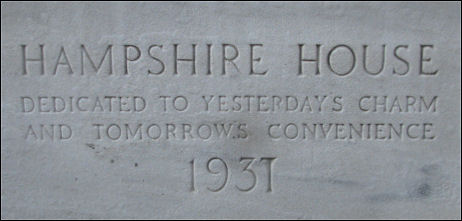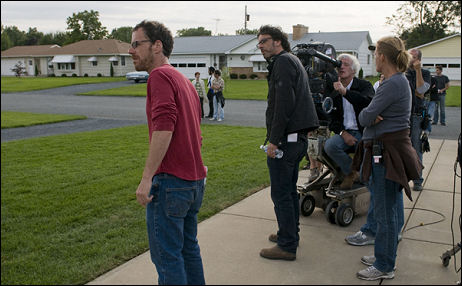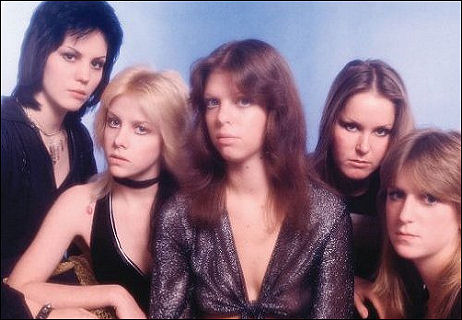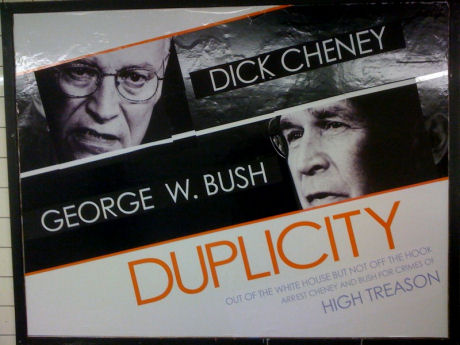To commemorate the ten-year anniversary of the death of Stanley Kubrick , I’m going to run a March 2000 trash piece called “Stanley Was Slippin’,” which I re-posted last June. It’s not that I don’t love and worship Kubrick’s films (with the exception of Fear and Desire and Eyes Wide Shut); it’s just that this is the cleanest and tightest thing I’ve ever written about him:

“I [once] referred to Eyes Wide Shut as a ‘perfectly white tablecloth.’ That implies purity of content and purpose, which it clearly has. But Eyes Wide Shut is also a tablecloth that feels stiff and unnatural from too much starch.
“Stanley Kubrick was one of the great cinematic geniuses of the 20th century, but on a personal level he wound up isolating himself, I feel, to the detriment of his art. The beloved, bearded hermit so admired by Tom Cruise and Steven Spielberg (both of whom give great interviews on the Eyes Wide Shut DVD) had become, to a certain extent, an old fogey who didn’t really get the world anymore.
“Not that he wanted or needed to. He created in his films worlds that were poetically whole and self-balancing on their own aesthetic terms. But as time went on, they became more and more porcelain and pristine, and less flesh-and-blood. Eyes Wide Shut is probably the most porcelain of them all.
“The lesson is simple: If you want your art to matter, stay in touch with the world. Keep in the human drama, take walks, go to baseball games, chase women, argue with waiters, ride motorcycles, hang out with children, play poker, visit Paris as often as possible and always keep in touch with the craggy old guy with the bad cough who runs the news stand.
“Kubrick apparently did very little of this. The more invested he became in his secretive, secluded, every-detail-controlled, nothing-left-to-chance lifestyle in England — which he began to construct when he left Hollywood and moved there in the early ’60s — and the less familiar he became with the rude hustle-bustle of life on the outside, the more rigid and formalized and apart-from-life his films became.
“Kubrick’s movies were always impressively detailed and beautifully realized. They’ve always imposed a certain trance-like spell — an altogetherness and aesthetic unity common to the work of any major artist.
“What Kubrick chose to create is not being questioned here. On their own terms, his films are masterful. But choosing to isolate yourself from the unruly push-pull of life can have a calcifying effect upon your art.
“Kubrick was less Olympian and more loosey-goosey when he made his early films in the `50s (Fear and Desire, The Killing, Paths of Glory) and early `60s (Lolita, Dr. Strangelove). I’m not saying his ultra-arty period that began with 2001: A Space Odyssey and continued until his death with A Clockwork Orange, Barry Lyndon, The Shining, Full Metal Jacket and Eyes Wide Shut, resulted in lesser films. The opposite is probably true.
“I’m saying that however beautiful and mesmerizing they were on their own terms, these last six films of Kubrick’s were more and more unto themselves, lacking that reflective, straight-from-the-hurlyburly quality that makes any work of expression seem more vital and alive.
“So many things about Eyes Wide Shut irritate me. Don’t get me started. So many others have riffed on this.
“The stiff, phoney-baloney way everyone talks to one another. The unmistakable feeling that the world it presents is much closer to 1920s Vienna (where the original Arthur Schnitzler novel was set) than modern-day Manhattan. The babysitter calling Cruise and Kidman ‘Mr. Harford’ and ‘Mrs. Harford.’ If there is one teenaged Manhattan babysitter who has ever expressed herself like a finishing school graduate of 1952 and addressed a modern Manhattan couple in their early 30s as ‘Mr.’ and ‘Mrs.,’ I will eat the throw rug in Dave Poland‘s apartment.
“The trite cliches that constitute 85% of Tom Cruise’s dialogue. The agonizingly stilted delivery that Nicole Kidman gives to her lines in the sequence in which she’s smoking pot and arguing with Cruise in their bedroom. That absolutely hateful piano chord that keeps banging away in Act Three.
“The ultimate proof that Kubrick was off his game in his final days? He was so wrong in his judgment that the MPAA wouldn’t hit him with an NC-17 rating for the orgy scene that he didn’t even shoot alternative footage he could use in the event he might be forced to prune the overt nudity. He was instead caught with his pants down and forced to resort to a ridiculous CGI cover-up that makes no sense in the context of the film. (Would Cruise’s sexually curious character be content with just seeing the shoulders and legs of the sexual performers as he walks through the mansion? Wouldn’t he make a point of actually seeing the real action?)
“No one has been blunt enough to say it, but Kubrick obviously played his cards like no one who had any serious understanding of the moral leanings of the culture, let alone a good poker player’s sense of the film business, would have. He played them like an old man whose instincts were failing him, and thereby put himself and Warner Brothers into an embarrassing position. I wish things hadn’t ended this way for him, but they did.
“I hope what I’ve written here isn’t misread. I’ll always be grateful to have lived in a world that included the films of Stanley Kubrick. He’s now in the company of Griffith, Lubitsch, Chaplin, Eisenstein and the rest. Prolific or spare, rich or struggling, lauded or derided as their artistic strivings may have been, they are all equal now.”











